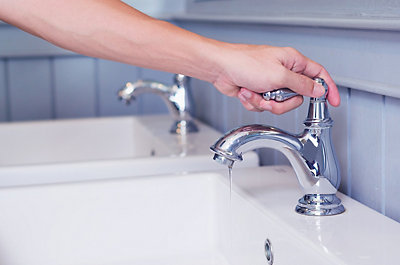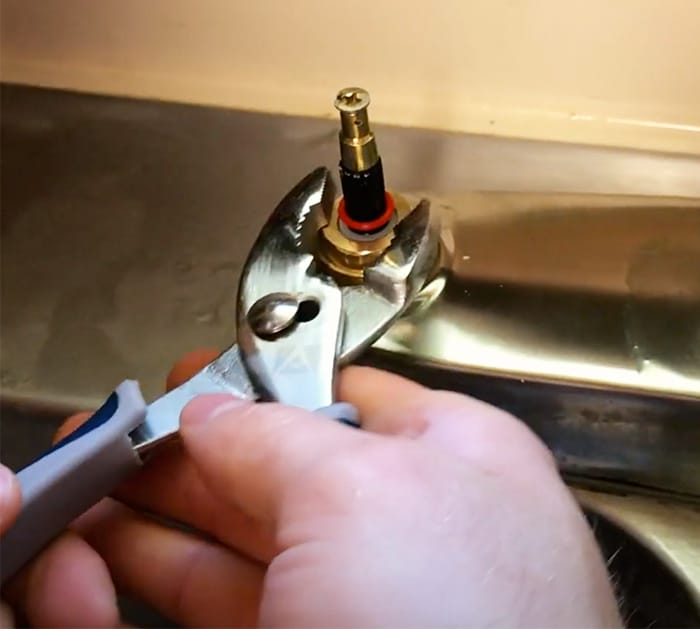Nearly everybody may have their own individual idea involving 4 Common Reasons for a Leaky Faucet.

Trickling taps might look like a minor hassle, however their effect surpasses simply the aggravation of the audio. From drainage to sustaining unnecessary monetary costs and health threats, overlooking a trickling tap can result in various consequences. In this write-up, we'll explore why it's important to address this usual family issue promptly and successfully.
Waste of Water
Environmental Influence
Leaking taps contribute dramatically to water waste. According to the Epa (EPA), a single tap trickling at one drip per secondly can waste more than 3,000 gallons of water per year. This not just stress water resources yet additionally affects ecological communities and wildlife depending on them.
Step-by-Step Overview to Repairing a Dripping Faucet
Devices Required
Before trying to deal with a dripping faucet, gather the required tools, consisting of a flexible wrench, screwdrivers, substitute components (such as washing machines or cartridges), and plumber's tape.
Usual Tap Issues and Their Solutions
Recognize the kind of faucet and the details concern creating the drip. Usual issues include worn-out washing machines, rusty valve seats, or defective O-rings. Describe manufacturer directions or on-line tutorials for step-by-step assistance on repairs.
Financial Expenses
Raised Water Bills
Beyond the environmental effect, leaking taps can blow up water costs considerably. The accumulated wastage over time translates into greater energy expenditures, which can have been stayed clear of with prompt fixings.
Possible Residential Or Commercial Property Damage
Moreover, long term leaking can result in damage to components and surface areas surrounding the faucet. Water buildup can trigger discoloration, corrosion, and also architectural issues if left neglected, leading to added repair service costs.
Wellness Issues
Mold And Mildew and Mildew Development
The continuous visibility of wetness from a trickling faucet creates an excellent atmosphere for mold and mildew and mildew growth. These fungis not only jeopardize interior air quality but likewise posture health threats, especially for individuals with respiratory system problems or allergies.
Waterborne Diseases
Stationary water in trickling taps can become a breeding ground for bacteria and various other pathogens, enhancing the danger of waterborne conditions. Impurities such as Legionella microorganisms prosper in stationary water, possibly bring about serious illnesses when ingested or inhaled.
Do it yourself vs. Professional Repair service
Advantages and disadvantages of Do It Yourself Repair Work
While some might try to repair a trickling tap themselves, DIY fixings come with their own collection of difficulties. Without correct understanding and devices, DIY efforts can intensify the problem or lead to insufficient repairs, extending the trouble.
Benefits of Employing a Specialist Plumber
Hiring an expert plumber makes certain that the underlying reason for the dripping tap is addressed efficiently. Plumbing professionals possess the competence and tools to identify and fix tap concerns successfully, conserving time and decreasing the threat of more damages.
Ecological Duty
Individual Contribution to Preservation
Taking duty for dealing with trickling taps straightens with more comprehensive efforts towards water preservation and ecological sustainability. Every individual's actions collectively make a significant effect on maintaining precious resources.
Lasting Living Practices
By focusing on punctual repairs and embracing water-saving behaviors, individuals contribute to lasting living methods that profit both present and future generations.
Preventive Measures
Regular Maintenance Tips
To stop trickling taps, do routine maintenance such as cleaning aerators, inspecting for leakages, and changing damaged components promptly. Additionally, take into consideration mounting water-saving tools or updating to more effective components.
Significance of Prompt Fixes
Addressing dripping faucets as quickly as they're noticed avoids additional water wastefulness and possible damages, ultimately saving both water and money in the future.
Effect On Residential Property Worth
Assumption of Well-Maintained Residential Or Commercial Property
Maintaining a home in good condition, consisting of addressing upkeep concerns like trickling faucets, boosts its regarded value and value among possible customers or occupants.
Influence on Resale Value
Properties with properly maintained plumbing fixtures, consisting of taps, command higher resale worths in the realty market. Addressing trickling taps can contribute to a favorable perception throughout residential property evaluations and arrangements.
Final thought
Addressing a leaking tap goes beyond plain ease; it's a crucial step toward preserving water, lowering financial expenses, and guarding health and residential property. Whether through DIY repair services or specialist aid, taking action to repair leaking taps is a tiny yet impactful means to advertise responsible stewardship of sources and add to a much healthier, a lot more lasting future.
How to Fix a Leaky Faucet: Step-by-Step Repair Guide
A leaky faucet may seem like a simple annoyance, but if it's not fixed promptly, that leak could cost hundreds to potentially thousands. From water damage to mold, mildew, and high water bills, even a tiny leak can be catastrophic if left unattended. Damage like this can even affect the overall value of your home, so it's important to take the right approach for leaky faucet repair. You may need the help of a plumber in some cases, but we've got a few tips you can try on how to fix a leaky faucet before calling the pros.
Four Faucet Types
When you're learning how to fix a leaky faucet, the first step is knowing what kind of faucet you're working with! There are four common types.
Cartridge Faucets
Cartridge faucets come in one- or two-handled varieties. In one-handled cartridge faucets, hot and cold water combines in a single cartridge. In the two-handled versions, hot and cold water are controlled separately and mixed in the faucet.
Ball Faucets
Ball faucets have a single lever you push up and down to adjust the pressure and rotate to change the temperature. A slotted metal ball controls the amount of water allowed into the spout.
Compression Washer Faucets
They're the oldest type of faucet, but they're still used in many homes — especially older ones. Compression faucets have two separate handles that, when turned, raise or lower the washer that seals a water valve. This valve stops water from flowing through the faucet when it is turned off.
Disc Faucets
Disc faucets rarely need to be repaired due to their maintenance-free design. The water flow is controlled by two discs — the upper one raises and lowers against a fixed lower disc, creating a watertight seal. If your disc faucet starts leaking, you may need to replace the seals or clean residue buildup from the inlets.
Fixing a Leaky Faucet
Step 1: Turn Off the Water
Whether you're learning how to fix a leaky bathtub faucet or how to fix a leaky kitchen faucet, always turn off the water supply to your working area when you're fixing a leak. The last thing you want is a flood added to your list of things to fix.
Look for the shutoff valves below your sink or around the tub and turn them clockwise to stop the water flow. If your faucet doesn't have shutoff valves, you may need to turn off the water for the whole house. Check to make sure it's off by turning the faucet on. If nothing comes out, you're ready to start the repair.
Step 2: Take Apart the Faucet
How you disassemble your faucet depends on the type of fixture you have. You can use a flathead screwdriver to remove the caps on top of the handle or handles for cartridge and compression faucets. Inside, you should see handle screws. Unscrew these with a screwdriver to remove the handle.
Disc- and ball-style faucets will typically have an inlet screw near the handle, and removing that will reveal the interior of the faucet.
Detach the Valve Stem
For cartridge- and compression-style faucets, you'll see the inner valve stem or cartridge once you remove the faucet handles. If you have a compression faucet, unscrew the brass valve stem. If you have a cartridge faucet, pull out the cartridge. If your cartridge has been in place for a while, it may require some tools or extra force to remove it due to mineral deposits.
Examine and Replace Parts
Once you've removed the parts, check them out to confirm what needs to be replaced. You may see corroded rubber washers, O-rings, stems, or cartridges. On a ball-style faucet, check the seats and springs for damage.
If you need to repair a leaky disc faucet, check the inlet and seals on the lower disc.
Once you determine what parts must be replaced, visit your local hardware store. Bring the damaged parts with you to ensure you can purchase the correct components to replace them.
Clean Valves and Faucet Cavity
If you've removed a stem or cartridge, you may notice mineral buildup in the faucet's threads. Use white vinegar to clean the valve seat by soaking it for a few minutes, then scrub it away with a soft toothbrush and rinse with warm water. You can also clean the interior of the faucet in the same way.
Reassemble the Faucet
Once your faucet is cleaned and the required parts have been replaced, it's time to reassemble it. Put the pieces back together and slowly turn the water supply back on. Doing this slowly is crucial because too much initial water pressure can damage the new hardware you've just installed.
https://homewarranty.firstam.com/blog/how-to-fix-leaky-faucet

We had been shown that editorial on Water Dripping from Faucet: Why and How to Fix through an acquaintance on another web property. Do you know about another person who is in to the niche? Why not share it. Thanks for your time spent reading it.